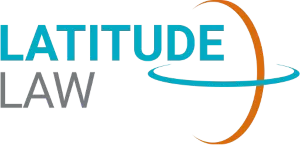- within Corporate/Commercial Law and Criminal Law topic(s)
- with readers working within the Retail & Leisure industries
The UK's Global Talent Visa is a unique immigration route designed for individuals who have already made significant contributions to their fields or show promising potential. It provides a flexible path to living and working in the UK without the need for a job offer, offering opportunities for long-term settlement.
Below, we take a detailed look at the Global Talent Visa's eligibility, the endorsement process, and alternative routes for those who might not meet the criteria.
Introduction to the Global Talent Visa
Introduced to replace the Tier 1 Exceptional Talent Visa, the Global Talent Visa targets individuals in academia and research, arts and culture, and digital technology who are recognised as current or future leaders.
One of the key benefits of this visa is its flexibility: it allows individuals to live and work in the UK for up to five years, with the potential to extend their stay or apply for Indefinite Leave to Remain. It is possible to achieve permanent residence after just 3 years if you are endorsed for exceptional talent.
Unlike other visa categories, you won't need a sponsor or a confirmed job offer to apply.
Eligibility Fields for the Global Talent Visa
Academia and Research
If you are working in academia or research, the Global Talent Visa is open to leaders or potential leaders in fields such as science, medicine, engineering, or the humanities.
Typically, you'll need to hold a senior academic or research position, have an individual fellowship, or be working on a research grant. However, even without a formal offer, you could still secure an endorsement through peer review, especially if you have gained recognition through notable publications or research outcomes.
For example, if you are an early-career researcher who has contributed to an international project, you could potentially obtain an endorsement if you can secure a recommendation from an established leader in your field.
Steps to Take For Applicants in Academia
- Obtain a senior academic role, a fellowship, or apply for peer-reviewed endorsement.
- Collect supporting documents, such as your CV, published research, and recommendation letters from leaders in your field.
- Submit your endorsement application to a recognised body, like The Royal Society.
- Once endorsed, complete the visa application via the UKVI website.
Arts and Culture
For those in the arts and culture sector, this visa is designed for individuals with exceptional talent or promise in areas such as dance, music, theatre, visual arts and architecture.
To qualify, your work needs to have made an impact beyond the UK. This might mean performances, exhibitions, or publications that are recognised internationally. Arts Council England is the key body responsible for endorsements in this category.
For example, if you are an architect whose designs have been featured in exhibitions across multiple countries, with a portfolio showing this international recognition, you could qualify for the visa. The same may apply for a filmmaker whose work has been screened at global festivals.
Steps to Take For Applicants in Arts and Culture
- Compile a portfolio of your work, demonstrating international exhibitions or performances over the last five years.
- Gather recommendation letters from prominent figures in your industry.
- Apply for endorsement through Arts Council England.
- Once endorsed, submit your visa application through UKVI.
Digital Technology
If you're in digital technology, the focus is on your contributions to fields like fintech, artificial intelligence, and cybersecurity. Here, you'll need to show that you've played a key role in a technology company or project that's had a wide impact.
While Tech Nation previously managed endorsements, this responsibility has shifted to the Scale-Up Institute.
Demonstrating leadership, innovation, and collaboration in the tech space is crucial. For instance, if you've helped develop a ground-breaking software product or led a successful startup, these are achievements that could get you endorsed. Mentoring or contributing to community projects within the tech sector also holds weight in your application.
Steps to Take For Applicants in Digital Technology
- Gather evidence of your leadership in a tech project or company, including contributions to innovation.
- Apply for endorsement through the Scale-Up Institute.
- Once endorsed, apply for the visa online through UKVI.
Eligibility Requirements
To apply for the Global Talent Visa, you need to be at least 18 and demonstrate that you're either a current leader or an emerging leader in your field.
The distinction between "exceptional talent" and "exceptional promise" is key, and depends on the stage you are at in your career:
- Exceptional talent applicants are established leaders, with significant achievements and international recognition.
- Exceptional promise applicants, on the other hand, are at the start of their careers but show clear potential for leadership.
Both routes require strong evidence, but exceptional talent applicants typically need to provide more substantial proof of their leadership and influence within their field.
You'll need to provide a mix of documents as evidence of your achievements, such as awards, international exhibitions, publications, or fellowships. The documents you gather should showcase your global impact: have you been invited to speak at an international conference? Has your work been featured in prominent publications? These are the kinds of achievements that will strengthen your application.
Common Pitfalls and How to Avoid Them
It is not uncommon for applicants to make mistakes during the process, and these can delay or even derail the application.
One major pitfall is incomplete documentation; make sure you've gathered all the necessary evidence before submitting. Low-quality recommendation letters can also weaken an application; recommendations should come from respected individuals who can vouch for your skills and contributions.
Another mistake is failing to demonstrate international recognition. This visa requires you to show your impact beyond your home country, so be sure to highlight where your work has gained attention internationally.
If you are unsure about any part of the process, consulting with a legal expert can save you time and hassle.
Alternative Visa Routes for Ineligible Applicants
If the Global Talent Visa isn't the right fit for you, there are other visa options that might better suit your situation:
- The Skilled Worker Visa is ideal if you already have a job offer from a UK-based employer who's willing to sponsor your visa. This visa is designed for skilled workers in demand within the UK.
- The Innovator Founder Visa is for entrepreneurs looking to start a business in the UK. You'll need to demonstrate that your business idea is innovative and scalable.
- The High Potential Individual Visa is for recent graduates from top global universities, allowing them to live and work in the UK without the need for a job offer.
Visa Duration and Extensions
The Global Talent Visa is initially granted for up to five years, but there's no cap on how many times you can renew it, as long as you continue to meet the criteria. After three years for exceptional talent or five years for exceptional promise, you can apply for Indefinite Leave to Remain, allowing you to settle permanently in the UK.
When renewing the visa, you'll need to provide evidence that you've maintained your professional contributions, such as income from your work or ongoing publications.
Bringing Family Members
One of the benefits of the Global Talent Visa is the ability to bring your spouse or partner and children to the UK. Your family members will need to apply separately, pay the visa fee, and cover the healthcare surcharge.
Once approved, they'll be able to live, work and study in the UK. This makes the Global Talent Visa a great option for individuals looking to relocate with their families.
The content of this article is intended to provide a general guide to the subject matter. Specialist advice should be sought about your specific circumstances.


